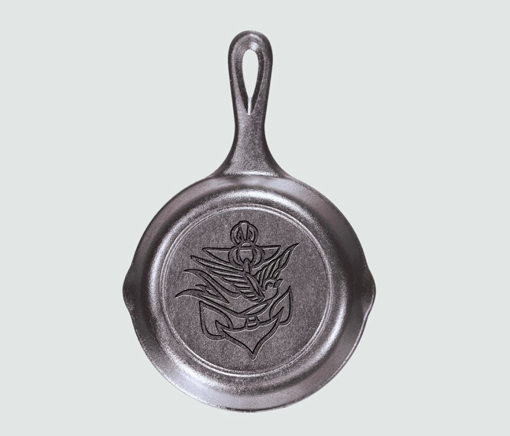Jason Isbell and the 400 Unit’s Weathervanes Shows Even the South Has a True North.
Jason Isbell may be the greatest songwriter in America right now, and his new record with band the 400 Unit, Weathervanes, does nothing to curtail this bold assertion.
But to judge Weathervanes merely by its syllables and soliloquy would be a miss. Weathervanes is the perfect title for a record as much about where Jason Isbell is going, as where he’s from.
As he says on “Middle of the Morning” Jason Isbell had been raised to be a “strong and silent Southern man” since back when he was just a “boy genius” playing guitar with the Drive by Truckers. Years later, “grown man” Isbell is revered in songwriting circles having written “Cover Me Up” which many attribute to Morgan Wallen, as well as “Maybe It’s Time” a massive hit from the Star is Born movie. As well as countless gems with his band the 400 Unit including “Dreamsicle,” “Alabama Pines,” and many more.
Isbell’s life has become very public, he even put out a documentary as much about his songwriting process as his marriage to fellow musician Amanda Shires called “Running with Our Eyes Closed.” The film showcases the at times difficult Isbell channeling his addict ways into intensity and hostility throughout his unique songwriting process.
If Isbell’s Southern upbringing taught him to be the strong silent type, he’s had a transformation as of late. Isbell is active on social media; the sort of rock star certain fans might roll their eyes about complaining that he’s become “too political.” Unlike The Chicks who were famously told “Shut Up and Sing,” Isbell can largely get away with it as he occupies a bit more hipster Americana space than straight up bullet-holes-in Bud-Light-cans-radio-Country.
Isbell has mentioned that he takes great pride in speaking up and saying things that you wouldn’t expect to come from someone with a thick Southern accent like his. In fact, Isbell was recently cast in Martin Scorcese’s upcoming Killers of the Flower Moon. A role he claims he received as the token “hillbilly” mostly because of how he talks.
To close your eyes and listen to Jason Isbell speak, you might expect him to slide across the front hood of the Dukes of Hazzard’s General Lee while screaming “Roll Tide!”
If it’s possible for an album to teach us not to judge a book by its cover, Weathervanes is that album. On Weathervanes topics range from school shootings to interracial dating, painkiller addiction, getting a life sentence for a stabbing, along with the normal stresses of just paying the bills. After listening, it’s quite clear that Jason Isbell is well aware of what the someone-just-stole-your-catalytic-converter 2023 America looks like. And he’s okay talking about all of it.
Standout track “Cast Iron Skillet” lays out the recipe for Weathervanes in all its glory.
“Cast Iron Skillet” like “Born in the USA” is a track that has all the potential to be misinterpreted by the masses. If it was a radio country song it would be reduced to a list of things we should remember to do. But it’s a Jason Isbell song, so each of his commands are meant to be thinkers rather than pump your fisters:
“Don’t wash the cast iron skillet.”
“Don’t drink and drive you’ll spill it.”
“Don’t ask questions, just believe it.”
On a recent podcast, Isbell confessed that not washing the cast iron skillet is essentially an old Southern wives’ tale. In fact, you can use soap on a cast iron skillet. It’s not going to hurt anything, it’s iron.
This is the magic of Jason Isbell, he’s consistently churning out “thinkers” of songs, but they sound so damn beautiful they’re just as likely to float right over you. What Isbell is really saying here is that passing down “don’t wash the cast iron skillet” as wisdom is full of as much shit as the guy babbling down at the Quickstop, or far worse—a young girl’s father being trained to think he should disown his daughter because she’s in a bi-racial relationship:
“Jamie found a boyfriend
With smiling eyes and dark skin
And her daddy never spoke another word to her again.”
To the contrary, Isbell believes we should ask too many questions even if it keeps us up at night. And that even the strong silent types should speak up, that’s how you save the world. Otherwise, we’re all just stuck in the past blindly believing:
“Don't wash the cast iron skillet
This town won't get no better, will it?
She found love and it was simple as a weathervane
But her own family tried to kill it.”
While at first blush there may not be a ton of appeal to listening to a woke Americana album filled with astute cultural observations, this isn’t any record. It’s a Jason Isbell record, so you’ll take your medicine without even knowing it.
Weathervanes is further proof of Isbell’s rare songwriting craft. If he is indeed the greatest songwriter of his generation, he holds the title belt above his head on many occasions on Weathervanes. A few of the standout tracks:
“Death Wish”
You’d be hard pressed to find a better opener to an album than “Death Wish.” Isbell makes it clear he’s danced with the devil in the pale moonlight and somehow turns the danger into a delicious single. Expectedly, a song called “Death Wish” has black eyes staring straight into your soul as Isbell works to sort through the grind of life gone stale, “Everybody dies but you gotta find a reason to carry on.”
Like only he can, Isbell eventually lands on a question, or a series of questions: “Who’s gonna save you? Who’s left to pray to? What’s the difference between a break down and a break thru?”
In the end, “Death Wish” is a wonderful ride where we get to wake up at “sunrise with the dealers and dancers.” It provides a moody and dark start to the record. “Death Wish” is the sort of song that sounds better at night, it shimmers like Lou Gramm’s “Midnight Blue” or Eddie and the Cruisers “On the Dark Side.” “Death Wish” is a black leather jacket, racing in the streets sort of song, like something you might hear at the amusement park in The Lost Boys.
Isbell knows “it takes a lot of medicine to feel like a little kid.” In the end it’s a dangerous woman he chooses, offering not much, but enough: “I want to hold her, ‘til it’s over.”
“Strawberry Woman”
Without a doubt, the most beautiful song on Weathervanes is “Strawberry Woman.” I can only imagine that “Strawberry Woman” is at the top of Isbell’s daughter Mercy Rose’s request list.
“Strawberry Woman” benefits from not being ripped from the headlines. There are no current events here, only an “old guitar” and true love. An ode to his wife and Mercy’s mother, Amanda Shires, “Strawberry Woman” is Isbell’s “Red Headed Stranger.” After listening, it’s clear Miss Shire is anything but.
“Save the World”
It’s one thing to write a song titled, “Stick That in Your Country Song.” It’s another thing all together to put a song on your record about school shootings, and wrestling with home schooling or putting your kid on the bus and sending them into a world you no longer believe in. “Save the World” says the quiet part out loud, asking if this is the world we want our kids to inherit, and if not, what are we going to do about it?
Much will be made and written about “Save the World” because second only to “Cast Iron Skillet” it’s the defining song of the record. Once again Isbell tries to tidy up the 24-hour news cycle into a song that washes over you while pulling no punches. If “Save the World” falls short, it’s just that it’s a tad too heavy to be a hit. It’s anxiety in audible form, you can feel the weight it’s carrying.
“Middle of the Morning”
Another melancholy masterpiece, “Middle of the Morning” is an anthem to simply trying, to existing. It’s a love song about the importance of putting one foot in front of the other. Isbell’s protagonist is difficult, even hard to love. He’s spent by the middle of the morning, “out of shit to say,” and desperate to point fingers. But for her he keeps trying, keeps opening up those windows—hoping to let some light in. The result is a big, bright, classic rock song, tender enough to make even the most grizzled listener buy some gas station flowers on the way home.
“King of Oklahoma”
With Zach Bryan getting the Sooner State “all gussied up” already, it’s a bold move to write a song about Oklahoma these days. Isbell does his best with this hard luck tale of painkillers and scrap metal. In vintage Isbell style, he harnesses the pain and all too real story and cuts right across its face with a memory as beautiful as the rest is bleak:
“She used to wake me up with coffee every morning
And I'd hear her homemade house shoes slide across the floor
She used to make me feel like the king of Oklahoma
But nothing makes me feel like much of nothing anymore.”
Weathervanes as a whole is further validation that Jason Isbell is on his way to becoming the preeminent songwriter of his generation. Perhaps more impressive, while Isbell was “raised to be a strong and silent Southern man,” on Weathervanes it’s clear he has plenty to say.
Some will listen for the lyrics, as Isbell is a master of his craft. Here are just a few that are worthy of being cross stitched into a throw pillow:
“Yes, I’ve tried to be grateful for my devils and call them by their names, but I’m tired by the middle of the morning I need someone to blame.”
“I was emptying my bladder, on a 20-foot ladder.”
“She’s going back to Bixby
Tired of trying to fix me
Says I got some shit to figure out.”
“We're running out of options
I've told you all my jokes
If you insist on being lonely
Can you leave a couple smokes?”
“There's a warm wind blowing through the laundromat
There's a young man crying in a cowboy hat
He got square-toed boots, so he ain't for real
Wouldn't last five minutes on a pedal steel.”
That said, it’s not just about the words here. The real magic of Isbell is while every song he writes has good bones indeed, they also have the curb appeal to waft over you no matter the depth of the message. A rare songwriter capable of writing a song that will be both revered for its craft, and when played aloud the songs are so strong musically almost anyone standing in the other room ask will ask, “Who is that?” “What is that?”
That’s Jason Isbell. And despite thick the Southern accent, we hear you loud and clear, brother.
NETWORK PARTNERS










